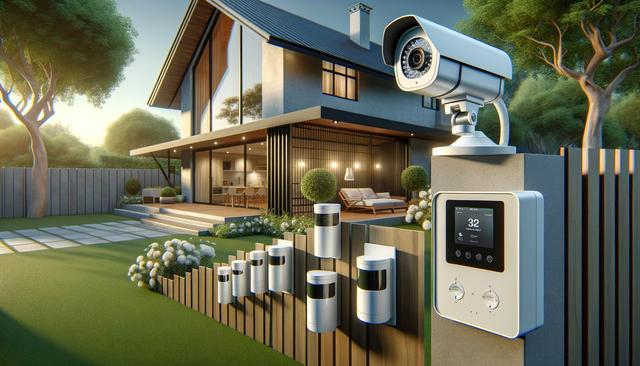
A Practical Guide to Home Security Systems
Understanding the Basics of Home Security Systems
Home security systems are designed to detect unauthorized entry, monitor activity, and alert homeowners or authorities to potential threats. These systems typically include a combination of hardware and software components that work together to secure a property. The core components often consist of control panels, sensors (such as door, window, and motion detectors), surveillance cameras, and alarm systems. These elements are connected through either wired or wireless networks, with modern systems increasingly favoring wireless technologies due to their flexibility and ease of installation.
One of the primary functions of a home security system is to deter criminal activity. When a potential intruder sees that a home is protected by visible cameras or alarm signage, they are less likely to attempt a break-in. Additionally, many systems are now integrated with mobile applications, enabling homeowners to monitor their property remotely in real time.
Types of Home Security Systems Available
Homeowners can choose from a wide range of security solutions depending on their needs, property size, and budget. The most common types include:
- Monitored Systems: These are connected to a central monitoring station that contacts emergency services if an alarm is triggered.
- Unmonitored Systems: These systems alert the homeowner directly through sirens or notifications without involving third-party monitoring.
- Wireless Systems: Easier to install and more adaptable to various home layouts.
- Wired Systems: Typically more reliable but require professional installation and are best suited for permanent residences.
Each type has its advantages. For example, monitored systems provide an added layer of reassurance, especially when the homeowner is away. Wireless systems, on the other hand, offer convenience and are ideal for renters or those who plan to move in the near future.
Key Features to Consider When Choosing a System
When selecting a home security system, several features should be evaluated to ensure the system aligns with specific needs. These include:
- Smart Home Integration: Compatibility with devices like smart locks, thermostats, and lighting systems.
- Mobile Access: The ability to control and monitor the system via a smartphone app.
- Video Surveillance: High-definition cameras with night vision and motion detection.
- 24/7 Monitoring: Professional surveillance services that respond to alerts at any time.
- Emergency Response: Quick access to emergency services should an incident occur.
Many modern systems also come with environmental sensors that detect smoke, carbon monoxide, or water leaks, providing a comprehensive safety net beyond just intrusion detection.
Installation and Maintenance Considerations
Installing a home security system can range from a simple DIY setup to a complex professional installation. Wireless systems are often designed for easy self-installation, while wired systems generally require professional assistance due to the complexity of routing cables and integrating components. Regardless of the method, it is important to ensure that all sensors and devices are placed correctly for optimal performance.
Maintenance is equally important. Regularly testing the system, replacing batteries, updating software, and checking for connectivity issues can help maintain system reliability. Many providers offer maintenance packages or customer support to assist with troubleshooting, which can be especially helpful for more advanced setups.
Homeowners should also consider the scalability of their system. As needs evolve, such as adding an outdoor camera or integrating additional smart devices, the system should be able to adapt without requiring a complete overhaul.
The Role of Home Security in Peace of Mind
Beyond the technical specifications, a home security system plays a crucial role in providing emotional reassurance. Knowing that one’s home is protected can reduce anxiety, especially for those who travel frequently or live in areas with higher crime rates. It also adds an extra layer of safety for families with children or elderly members.
Additionally, having a security system can potentially reduce insurance premiums, as many insurers offer discounts for homes equipped with verified security measures. This can make a high-quality system a worthwhile investment both for protection and long-term savings.
Ultimately, the presence of a well-maintained and thoughtfully selected home security system fosters a sense of control and safety, which is invaluable in today’s unpredictable world.


